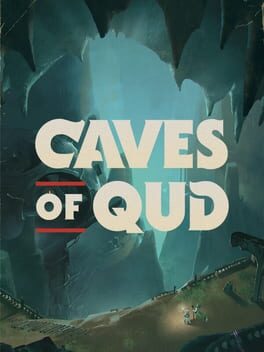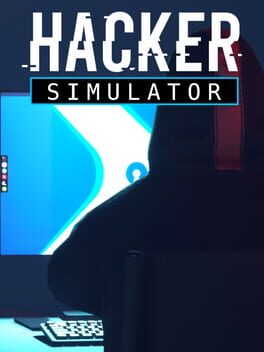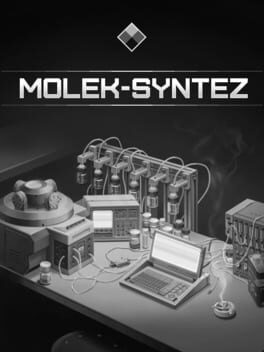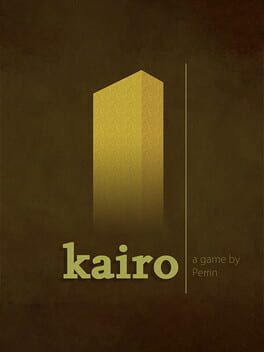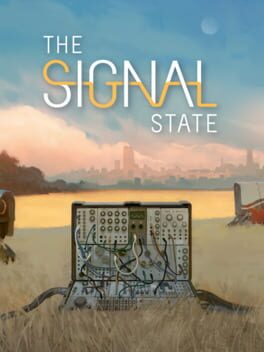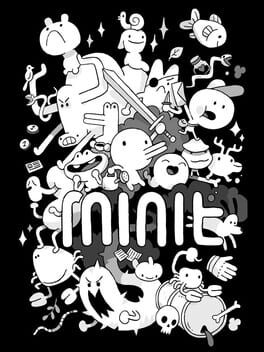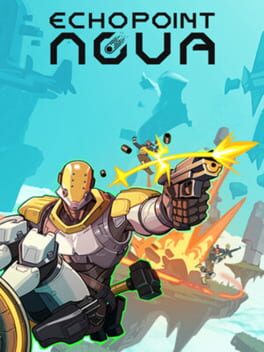smeethan
10 reviews liked by smeethan
Caves of Qud
2015
Caves of Qud is a traditional roguelike RPG adventure game set in a science fantasy world of swords, guns, and psionics as you explore a vast and detailed world one square at a time. It sounds amazing but in practice if you aren't a tried and true aficionado of the old-school roguelike club your mileage may vary.
As I started playing I realised this was made for the old school, by the old school. The world is vast, the options are vast, the potential is incredible - but it's entrenched in the anachronistic trappings of doing things as complicated as possible that a few people learned to master 30 years ago. Hundreds of keyboard shortcuts must be memorised that make performing even the simplest of tasks require a 4 step operation and you can only learn 2 steps exist from the keyboard controls screen.
Adding to the complication is the 'replace half the words' approach to fantasy writing that some call immersive, but I find frustrating. Especially because the dedication to being as retro as possible means there's no onboarding, everything is made as obtuse and inscrutable as possible. You get dumped in a little village and if you want to know the difference between two plant tiles or what anything is called you have to manually check every single thing and figure it out yourself.
Overall Qud is impenetrable and I think all the reasons I don't like Qud is every reason that the fans love it. It's built for a specific group of people who already know how it works and want to discover everything themselves. It takes absolutely no steps towards accessibility. Even the fan base will only let you in the discord if you're inducted into their literal club with an application form.
It's the game equivalent of wanting to hang out with your older brother, but him and his friend have to discuss it and whether to let you in on any of the inside jokes.
As I started playing I realised this was made for the old school, by the old school. The world is vast, the options are vast, the potential is incredible - but it's entrenched in the anachronistic trappings of doing things as complicated as possible that a few people learned to master 30 years ago. Hundreds of keyboard shortcuts must be memorised that make performing even the simplest of tasks require a 4 step operation and you can only learn 2 steps exist from the keyboard controls screen.
Adding to the complication is the 'replace half the words' approach to fantasy writing that some call immersive, but I find frustrating. Especially because the dedication to being as retro as possible means there's no onboarding, everything is made as obtuse and inscrutable as possible. You get dumped in a little village and if you want to know the difference between two plant tiles or what anything is called you have to manually check every single thing and figure it out yourself.
Overall Qud is impenetrable and I think all the reasons I don't like Qud is every reason that the fans love it. It's built for a specific group of people who already know how it works and want to discover everything themselves. It takes absolutely no steps towards accessibility. Even the fan base will only let you in the discord if you're inducted into their literal club with an application form.
It's the game equivalent of wanting to hang out with your older brother, but him and his friend have to discuss it and whether to let you in on any of the inside jokes.
Palworld
2024
Hacker Simulator
2021
Hacker Simulator takes a more grounded approach to the hacker sim and lets you employ simulations of realistic tools and methods used by contemporary hackers. Sadly it does this in the most repetitive, tedious, and slow way possible, showing a poor understanding of what makes a game fun.
It has a great first impression. The PC has a simulated OS with terminals, linux commands, a pretend browser, and it seems close to 'Welcome to the Game II' levels of depth, but you very quickly discover how shallow everything is. The OS is clunky to use, terminals only take a few specific commands, the browser isn't dynamic, apps don't take arguments, you have to click into text boxes to start typing - there's lots of annoying cut corners. Then you get into hacking and again it seems reasonable at first. You hack the wifi, hack an IP, steal some data. Then you do it again, and again, until you unlock malware and phishing.
This is where the game gets to its most repetitive. For some reason almost every hack from this point is a phishing attack to upload malware. Phishing involves a counting game, spending $3 for a burner facebook account, and running an upload command. You do this about 25 times then you unlock exploit crafting which introduces a new money sink of $12 roughly every 10 minutes and the rewards barely cover the cost. Then the game wants you to grind $350 to get a mining rig. This took me about 8 hours of repeating these phishing attacks, occasionally broken up by stealing files, and after all that you're rewarded with another uninteresting 'hack' puzzle that involves checking a long hex code for invalid characters and re-writing it.
The underlying ideas here are great - using realistic tools, doing a variety of realistic hacks - but dear god the implementation and pacing is awful. Counting items in a list and writing the same 6 instructions is mind numbing, least of all when it's all you have to do for hours on end only to be rewarded with another mechanically lazy, easy to generate, boring 'puzzle'. Throughout the grind you learn how shallow the 'generative' elements are. Files have meaningless random names placed randomly into a file structure. Every contact says one of two lines. Every problem is introduced alongside its solution so there's zero anticipation. And if you do extra work and download extra account files they soon become invalid and just take up space on your hard drive, so there's actually punishment for being a 'better' hacker.
At its core this game is just doing the bare minimum. Mechanics are implemented in lazy, simple ways that are easy to randomize. Zero foreshadowing, nothing to look forward to. Every feature has corners cut that make them less interesting to use. Every hack is over simplified, padded with extra steps, unfun, and overused. Rewards are undermined by hacking costs. Upgrades are barely of any use. At every turn the game feels unfinished, rushed, and missing variation, yet this game isn't in early access and the dev is working on other projects. The game exe doesn't even have it's own icon, the unreal logo is showing. A sad waste of real potential.
It has a great first impression. The PC has a simulated OS with terminals, linux commands, a pretend browser, and it seems close to 'Welcome to the Game II' levels of depth, but you very quickly discover how shallow everything is. The OS is clunky to use, terminals only take a few specific commands, the browser isn't dynamic, apps don't take arguments, you have to click into text boxes to start typing - there's lots of annoying cut corners. Then you get into hacking and again it seems reasonable at first. You hack the wifi, hack an IP, steal some data. Then you do it again, and again, until you unlock malware and phishing.
This is where the game gets to its most repetitive. For some reason almost every hack from this point is a phishing attack to upload malware. Phishing involves a counting game, spending $3 for a burner facebook account, and running an upload command. You do this about 25 times then you unlock exploit crafting which introduces a new money sink of $12 roughly every 10 minutes and the rewards barely cover the cost. Then the game wants you to grind $350 to get a mining rig. This took me about 8 hours of repeating these phishing attacks, occasionally broken up by stealing files, and after all that you're rewarded with another uninteresting 'hack' puzzle that involves checking a long hex code for invalid characters and re-writing it.
The underlying ideas here are great - using realistic tools, doing a variety of realistic hacks - but dear god the implementation and pacing is awful. Counting items in a list and writing the same 6 instructions is mind numbing, least of all when it's all you have to do for hours on end only to be rewarded with another mechanically lazy, easy to generate, boring 'puzzle'. Throughout the grind you learn how shallow the 'generative' elements are. Files have meaningless random names placed randomly into a file structure. Every contact says one of two lines. Every problem is introduced alongside its solution so there's zero anticipation. And if you do extra work and download extra account files they soon become invalid and just take up space on your hard drive, so there's actually punishment for being a 'better' hacker.
At its core this game is just doing the bare minimum. Mechanics are implemented in lazy, simple ways that are easy to randomize. Zero foreshadowing, nothing to look forward to. Every feature has corners cut that make them less interesting to use. Every hack is over simplified, padded with extra steps, unfun, and overused. Rewards are undermined by hacking costs. Upgrades are barely of any use. At every turn the game feels unfinished, rushed, and missing variation, yet this game isn't in early access and the dev is working on other projects. The game exe doesn't even have it's own icon, the unreal logo is showing. A sad waste of real potential.
Molek-Syntez
2019
As one of Zachtronic's final puzzle games Molek-Syntez feels like a bleak note to end on. It has all the mechanical and functional feel of a zach game, but its stylistic minimalism and the blunt game design leave it feeling as cold and lonely as the narrator. A slightly dire send off for old fans and far from the place to start for those new to the series.
Your goal here is to program tools affixed to the edges of the board to re-arrange base elements into new ones, but how you do that is left to your experimentation as there's no instructions or tutorial. This hands off approach may leave you feeling helpless or empowered depending how much experience you have with the series. Long time fans will be able to intuit most of the gameplay while newcomers will be at a loss quickly with no guidance except what little guidance the fan base have put together.
If you enjoy zach games this is very much more of the same with some new twists - it feels like an experimental remix of Opus Magnum minus the flare and pageantry. The story is limited to some on-screen text so there's no characters, art, or animations, just you and the puzzles. As for the style and music, if you think of Exa as the stereotypical US themed game, Shenzen as the Asia one, and Opus as the Western Europe one, Molek is very much the Eastern European game with the cold and sardonic tone tropes at play.
I feel like zach games have always struggled to make their titles feel more fun than functional, but here the pretence is eschewed and you're left with the mechanics laid bare. If you're familiar with Opus you can expect a similar albeit more challenging experience, and if not you should start with something more accessible like EXA-Punks or Opus Magnum. This isn't one for newcomers and will likely give you a polarising introduction to the premise of these games.
Your goal here is to program tools affixed to the edges of the board to re-arrange base elements into new ones, but how you do that is left to your experimentation as there's no instructions or tutorial. This hands off approach may leave you feeling helpless or empowered depending how much experience you have with the series. Long time fans will be able to intuit most of the gameplay while newcomers will be at a loss quickly with no guidance except what little guidance the fan base have put together.
If you enjoy zach games this is very much more of the same with some new twists - it feels like an experimental remix of Opus Magnum minus the flare and pageantry. The story is limited to some on-screen text so there's no characters, art, or animations, just you and the puzzles. As for the style and music, if you think of Exa as the stereotypical US themed game, Shenzen as the Asia one, and Opus as the Western Europe one, Molek is very much the Eastern European game with the cold and sardonic tone tropes at play.
I feel like zach games have always struggled to make their titles feel more fun than functional, but here the pretence is eschewed and you're left with the mechanics laid bare. If you're familiar with Opus you can expect a similar albeit more challenging experience, and if not you should start with something more accessible like EXA-Punks or Opus Magnum. This isn't one for newcomers and will likely give you a polarising introduction to the premise of these games.
Kairo
2013
An atmospheric puzzler that uses simple mechanics to deliver a short and surreal experience. While clearly a passion project there's a lack of polish to the game that can't be ignored and will make or break your experience.
The majority of puzzles in Kairo were fine but there are a handful of secrets that are too esoteric to even consider solving. One puzzle could only be solved by the community for example, and that event came and went years ago so a guide is the only way to 100% the game. Meanwhile most of the early details I thought would be clues to later puzzles ended up being entirely irrelevant. The game design is unrefined in that sense but thankfully most of the game is intuitive enough to solo.
Kairo's world, its minimalism, and dashes of environmental storytelling will likely decide if you enjoy the experience or not as beyond the puzzles there's not really anything else to the game. The world is more atmospheric with implied poetic themes and liminal open spaces while being very linear to traverse, so if you need a story and clear instructions this isn't the one for you.
Personally I had no qualms following a guide once I hit certain dead ends and despite that I ended up enjoying the experience for the most part. I was still trying the puzzles first before looking for solutions and filling in gaps. Kairo has a lot of rough edges but the developer's heart is on full display and I can't fault a first attempt too harshly, just expect your mileage to vary.
The majority of puzzles in Kairo were fine but there are a handful of secrets that are too esoteric to even consider solving. One puzzle could only be solved by the community for example, and that event came and went years ago so a guide is the only way to 100% the game. Meanwhile most of the early details I thought would be clues to later puzzles ended up being entirely irrelevant. The game design is unrefined in that sense but thankfully most of the game is intuitive enough to solo.
Kairo's world, its minimalism, and dashes of environmental storytelling will likely decide if you enjoy the experience or not as beyond the puzzles there's not really anything else to the game. The world is more atmospheric with implied poetic themes and liminal open spaces while being very linear to traverse, so if you need a story and clear instructions this isn't the one for you.
Personally I had no qualms following a guide once I hit certain dead ends and despite that I ended up enjoying the experience for the most part. I was still trying the puzzles first before looking for solutions and filling in gaps. Kairo has a lot of rough edges but the developer's heart is on full display and I can't fault a first attempt too harshly, just expect your mileage to vary.
The Signal State
2021
The Signal State takes a similar approach to the Zachtronic programming games by trying to make a game out of modular synthesis. While it almost hits the mark, it sadly goes to show what a delicate balance there is between maths themed games, and game themed maths.
The strongest element here is simply the visual design as all the modules, cables, and UI look crisp and how everything interacts make sense. From a technical perspective the implementation of the modules and how everything works is very impressive. The Jakub Różalski inspired art is nice and gives the little story there is some substance. The music is fine background noise too, but the story itself and dialogue didn't work for me. Characters have little to no flavour and the scenario feels overly contrived for an excuse to play with modular synthesis.
As for the gameplay it's a strong effort and I can see how people enjoy it, but I feel it suffers a lot of fundamental game design miss-steps. Starting out by explaining the basic flow of signal with the example of 'B, A, C' rather than left to right as 'A, B, C' isn't a big deal, you get what's intended, but that lack of clarity is everywhere. It stood out to me more when the objective text uses language that doesn't match the descriptions of modules and how they work which confuses things in a game already dealing with some heady subject matter. The objectives are also stated in incredibly technical language which gets very confusing without breaking it down on paper into more natural language (even then some are worded quite poorly).
After 15 levels I was still encountering tutorials because the game also has a very atomised approach to concepts. Normally puzzle games introduce a mechanic, iterate on it, and combine past mechanics to build on your knowledge. Here however you get the module tutorial, then a final exam, and then on to the next one. There's little to no pacing or knowledge building so you always feel on the back pedal and what you did learn doesn't feel like it naturally comes up again because you had to make such a big leap to even 'learn' the new concept. It doesn't let you repeat the work to cement the understanding.
In conclusion, this is a game where if you take away the theme you're just left with a series of maths problems. I've used Reason enough to know this game could be more entertaining if it was centred around euro-racks and producing music - that is to say producing sounds rather than just calculating numeric results. For people who are into maths games this is absolutely going to still be enjoyable, if you're into modular synthesis it will teach you real valuable knowledge, but if you're looking for a game you should be aware that this leans more into lessons than levels.
The strongest element here is simply the visual design as all the modules, cables, and UI look crisp and how everything interacts make sense. From a technical perspective the implementation of the modules and how everything works is very impressive. The Jakub Różalski inspired art is nice and gives the little story there is some substance. The music is fine background noise too, but the story itself and dialogue didn't work for me. Characters have little to no flavour and the scenario feels overly contrived for an excuse to play with modular synthesis.
As for the gameplay it's a strong effort and I can see how people enjoy it, but I feel it suffers a lot of fundamental game design miss-steps. Starting out by explaining the basic flow of signal with the example of 'B, A, C' rather than left to right as 'A, B, C' isn't a big deal, you get what's intended, but that lack of clarity is everywhere. It stood out to me more when the objective text uses language that doesn't match the descriptions of modules and how they work which confuses things in a game already dealing with some heady subject matter. The objectives are also stated in incredibly technical language which gets very confusing without breaking it down on paper into more natural language (even then some are worded quite poorly).
After 15 levels I was still encountering tutorials because the game also has a very atomised approach to concepts. Normally puzzle games introduce a mechanic, iterate on it, and combine past mechanics to build on your knowledge. Here however you get the module tutorial, then a final exam, and then on to the next one. There's little to no pacing or knowledge building so you always feel on the back pedal and what you did learn doesn't feel like it naturally comes up again because you had to make such a big leap to even 'learn' the new concept. It doesn't let you repeat the work to cement the understanding.
In conclusion, this is a game where if you take away the theme you're just left with a series of maths problems. I've used Reason enough to know this game could be more entertaining if it was centred around euro-racks and producing music - that is to say producing sounds rather than just calculating numeric results. For people who are into maths games this is absolutely going to still be enjoyable, if you're into modular synthesis it will teach you real valuable knowledge, but if you're looking for a game you should be aware that this leans more into lessons than levels.
Starfield
2023
Diablo IV
2023
This is definitely the most cinematic top-down arpg I've played. Although I could not get all that into the story, I really enjoyed aspects of it. The rivalry between Lilith and Inarius was interesting and their characters were both great villains. The side characters that accompany you on your journey are all likeable and have interesting arcs and the world-building is especially fantastic. The game world around you is wonderfully detailed, and there is a general sense of danger and doom that is ever-present as you progress through the world tiers. The different classes are all unique and interesting in their own ways. I had a lot of fun playing as a Druid and a Barbarian. One thing I definitely noticed was that this was not a game I could sit down and play for hours at a time. I had to take breaks because I found that the gameplay loop was very visible to the player and because of that it could become tedious if played for too long. When played in short bursts I had a great time though. Diablo 4 does not do much of anything new, but it is a solid, fun arpg and I may come back to it in the future to start a new character in a later season.
Minit
2018
A quirky micro RPG that has you living life one minute at a time as the result of a cursed sword. The premise is pretty cool, and the minimal art style compliments the minimalist design of the game which mimics similarly minimalist RPG's like Links Awakening.
Since you only have one minute to do anything the actual options are all very clearly signposted and telegraphed. Getting from one save point to the next will take about a minute. Completing a nearby challenge will take about a minute. And some of the events are hilariously timed, giving you ever increasing anxiety as you're forced to wait or find yourself trying to reach a destination just in time.
What's disappointing then is that such a tight and efficient design is explored to such a shallow level - or perhaps there simply isn't a way to give it depth. The game is very small, the things you can do are all very straightforward gaming faire, and while I wouldn't say the ending is predictable it is abrupt. There's a small handful of mundane side quests but there's not really the motivation to pursue them since the main story doesn't require anything of you.
It's a cute package and it does have some funny moments, but despite the interesting premise it doesn't really go anywhere or explore the idea in any depth leaving it feeling more like a proof of concept than anything.
Since you only have one minute to do anything the actual options are all very clearly signposted and telegraphed. Getting from one save point to the next will take about a minute. Completing a nearby challenge will take about a minute. And some of the events are hilariously timed, giving you ever increasing anxiety as you're forced to wait or find yourself trying to reach a destination just in time.
What's disappointing then is that such a tight and efficient design is explored to such a shallow level - or perhaps there simply isn't a way to give it depth. The game is very small, the things you can do are all very straightforward gaming faire, and while I wouldn't say the ending is predictable it is abrupt. There's a small handful of mundane side quests but there's not really the motivation to pursue them since the main story doesn't require anything of you.
It's a cute package and it does have some funny moments, but despite the interesting premise it doesn't really go anywhere or explore the idea in any depth leaving it feeling more like a proof of concept than anything.
